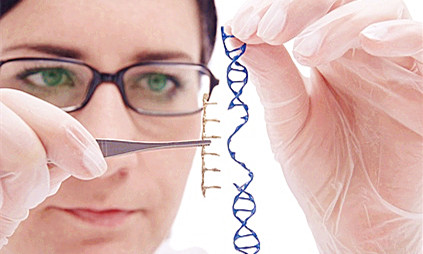‘Synthetic gene circuit’ may improve effectiveness of cancer immunotherapy
October 20, 2017
Source: medicalnewstoday
 977
977

Synthetic gene circuits that only trigger powerful, tumor-specific immune responses when they detect certain disease markers may help immunotherapies to fight cancer more effectively, according to a new study.
Researchers from the Massachusetts Institute of Technology (MIT) in Cambridge suggest that their artificial DNA-encoded circuits may help to overcome some of the problems that have dogged the translation of cancer immunotherapy from the laboratory to the clinic. They report their work in a paper that was recently published in the journal Cell.
Immunotherapy is a promising, albeit relatively new, type of treatment that enlists the patient's own immune system to fight the cancer.
There are several ways that it can do this. For instance, it can slow or stop the growth and spread of tumor cells, or it can help the immune system to destroy them more effectively.
Some immunotherapies have already been approved and are in clinical use. In 2011, for instance, the Food and Drug Administration (FDA) approved ipilimumab (Yervoy) for the treatment of advanced melanoma that cannot be removed through surgery.
By DduRead more on
- CRUK researchers develop new early-stage rectal cancer treatment December 12, 2020
- Study Discovers New Mechanism of Immune System to Fight Disease September 3, 2018
- J&J Prepares for Appeal after Judge’s Multibillion-Dollar Verdict Against its Talc Defence August 27, 2018
- Bristol-Myers to sell Opdivo in China at Half its Cost in the U.S.A August 24, 2018
- Bristol-Myers Squibb’s Opdivo Ensures a Lung Cancer Position August 22, 2018
your submission has already been received.
OK
Subscribe
Please enter a valid Email address!
Submit
The most relevant industry news & insight will be sent to you every two weeks.



